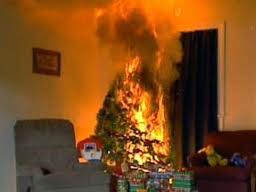Posted by Teresa on December 21, 2011 under Landlord Tips | 
 It’s time to put together your New Year’s Resolutions for 2012. And while you are probably an excellent landlord in every way, you may be considering making a few improvements in the New Year. To help, we’ve compiled a list of landlord behaviors to avoid:
It’s time to put together your New Year’s Resolutions for 2012. And while you are probably an excellent landlord in every way, you may be considering making a few improvements in the New Year. To help, we’ve compiled a list of landlord behaviors to avoid:
- Avoid the temptation to go through your tenants’ private spaces. Sounds like a no-brainer, since tenants have the right to privacy, even though they live in your property. But when a tenant recently reported coming home and finding the contents of her closet on the floor, along with a note saying that overstuffing will break the door, it apparently needs to be addressed.
- Don’t show up at your tenant’s door without the appropriate notice, as specified by the law and in the lease. Even if you’re already in the neighborhood, and you just want to stop in and change the furnace filter, and it will only take a moment, avoid this bad habit. Unless you see an imminent threat to your tenant’s safety, you need to give them proper notice.
- Avoid being like the San Francisco landlord who is being sued for $10 million by his tenants for failing to deal with bugs and mold. We’ll never be able to completely eradicate the rats, bedbugs, cockroaches, and other creepy crawlies that most people do not enjoy having around. But it’s a landlord’s duty to provide a safe and habitable living unit. And mold is a serious health hazard, especially for those with asthma or compromised immune systems. So if your tenants report a problem with bugs or mold, take care of it.
- Don’t discriminate against your tenants or prospective tenants. Raise your awareness of what constitutes discrimination—because it’s illegal. For example, one Ohio landlord recently got in trouble for her “White Only” pool sign. She said it’s an antique, and must have thought it was harmless, but one tenant didn’t find it to be harmless. The landlord has been fined by the state Civil Rights Commission, and is appealing the charges
Landlords aren’t perfect—and neither are tenants. But it’s important to keep a professional business relationship with your tenants—keep that in mind as you go into the New Year!
Posted by Teresa on December 14, 2011 under Landlord Tips | 
 If your rental properties are in cold-weather states, you could be in for a rough winter. Preparing a rental for winter storm season is an important part of maintaining your investment. Here’s how to limit the damage a storm can do:
If your rental properties are in cold-weather states, you could be in for a rough winter. Preparing a rental for winter storm season is an important part of maintaining your investment. Here’s how to limit the damage a storm can do:
- Trim dead tree branches and limbs: Snow, wind and ice can bring down branches, damaging property or causing injuries. They can also take power lines with them, which is even more dangerous.
- Clean gutters: If gutters are filled with leaves and debris, snow and ice can build up, causing damages to the roof an eaves, and eventually harming walls and ceilings.
- Check chimney flues: In units with working fireplaces, it’s important to have an annual inspection by a qualified professional. Creosote buildup can cause fires.
- Check each unit’s smoke and carbon monoxide (CO) detectors: If any unit has missing detectors, add them. If they run on batteries, replace the batteries each year. Now is a good time. Or, convert them to hard-wired units for even more security.
- Provide tenants with a Storm Preparation Tip Sheet: Prepare a list of instructions and tips to leave with each tenant, so they can consult it if a winter storm arrives. Give them tips on how to survive a few days without power, such as making sure they have flashlights, batteries, and adequate food and water on hand.
- Prevent frozen pipes: Instruct tenants to let faucets drip when temperatures are expected to dip way below freezing. Wrap pipes that are exposed to external walls with insulation or even layers of newspaper covered with plastic. Show tenants where water main shut-offs are located in case of emergency.
- Provide tenants with emergency numbers: Let them know how to reach you if a winter emergency occurs on your rental property. Let them know that downed power lines are especially dangerous, and to call the power company immediately (provide the number on a Storm Preparation Sheet).
Protect your rental property and assets through tenant background checks. Proper tenant screening will ensure you are leasing to the best possible tenants.
Posted by Teresa on December 11, 2011 under Landlord Tips | 
 Despite the beauty of holiday decorations, it’s clear they can be very dangerous. According to the National Fire Protection Association (NFPA), Christmas trees were the first things to ignite in an average of 240 home fires per year between 2005 and 2009. These fires caused an estimated average of 13 deaths, 27 injuries and nearly $17 million in property damage per year.
Despite the beauty of holiday decorations, it’s clear they can be very dangerous. According to the National Fire Protection Association (NFPA), Christmas trees were the first things to ignite in an average of 240 home fires per year between 2005 and 2009. These fires caused an estimated average of 13 deaths, 27 injuries and nearly $17 million in property damage per year.
And holiday lights and other decorative lights caused nearly 150 fires per year in that same period with an average of eight deaths, 14 injuries and $8.5 million in property damage.
Some of the top causes of the Christmas tree fires include:
- Electrical problems (33%)
- Heat source too close to the tree (20%)
- Decorative lights (13%)
- Candles (11%)
Help keep your tenants safe. Prepare a safety letter with fire prevention tips and make sure that each tenant gets one. Be sensitive to tenants’ various religious practices, and use non-denominational language.
Include the following tips in your notice:
- Follow the manufacturer’s directions for using holiday lights.
- Lights with loose cords, loose bulb connections and frayed, worn or broken cords should not be used.
- Lights should not be on when you are not at home. Unplug lights before leaving home or going to sleep.
- Never use candles on or near a tree.
- Place the tree at least three feet away from any heat source, including fireplaces, space heaters and heat vents
- If using a live tree, cut several inches off the base of the trunk before placing it in the tree stand and water it daily. Recycle the tree when it begins dropping needles. Don’t leave a dried-out tree in a storage area or against the building.
- Make sure you have a working smoke detector. Contact the rental office if you need to have yours checked.
Check with your local fire department for additional tips. It only takes a few minutes to prepare this notice and to help your tenants stay safe during the holiday season. Avoid the tragedy of a house or apartment fire.
Posted by Teresa on December 8, 2011 under Landlord Paperwork and Forms | 
 If you’re like most landlords, you want to keep your investment properties in good shape. A well-maintained property appraises well, attracts quality tenants, can help you avoid liability issues and will save you money in the long run.
If you’re like most landlords, you want to keep your investment properties in good shape. A well-maintained property appraises well, attracts quality tenants, can help you avoid liability issues and will save you money in the long run.
Establishing a maintenance and repairs policy and setting up procedures that are clearly understood by your tenants and your maintenance person or company (even if that’s you!) can go a long way toward making this aspect of owning rental property much easier.
Rental Property Maintenance Procedures May Include:
- A regular inspection schedule, such as quarterly, set in advance, and preceded by 48-hour notice (or whatever your state requires);
- Keeping a tenant request tracking system or log to make sure that safety and other issues are handled within a reasonable time frame;
- Notifying tenants of repair and maintenance policies when they apply for a lease, at lease signing, and throughout the year;
- Providing tenants with several maintenance report forms to use throughout their lease term;
- Establishing a response time for each category of tenant complaints: safety, emergency, routine, etc.;
- Contact information for maintenance problems that are reported during the day, after hours, or on holidays.
Rental Property Maintenance Policies Typically Specify:
- Tenant responsibilities: changing light bulbs (for safety), and promptly reporting safety hazards like loose floorboards or railings, blown fuses, clogged plumbing and electrical problems.
- Landlord responsibilities: repairing hazards immediately, replacing air filters regularly, checking heating systems annually, responding to tenant complaints within a reasonable (stated) time frame and providing a safe, habitable residence for tenants.
Maintaining your rental property and responding promptly to tenant requests are vitally important to your business. In some cases, tenants may be entitled to withhold rent if maintenance issues are not addressed. And you never want to be responsible for a health problem or injury that occurs due to improper maintenance or repairs.
 It’s time to put together your New Year’s Resolutions for 2012. And while you are probably an excellent landlord in every way, you may be considering making a few improvements in the New Year. To help, we’ve compiled a list of landlord behaviors to avoid:
It’s time to put together your New Year’s Resolutions for 2012. And while you are probably an excellent landlord in every way, you may be considering making a few improvements in the New Year. To help, we’ve compiled a list of landlord behaviors to avoid:


